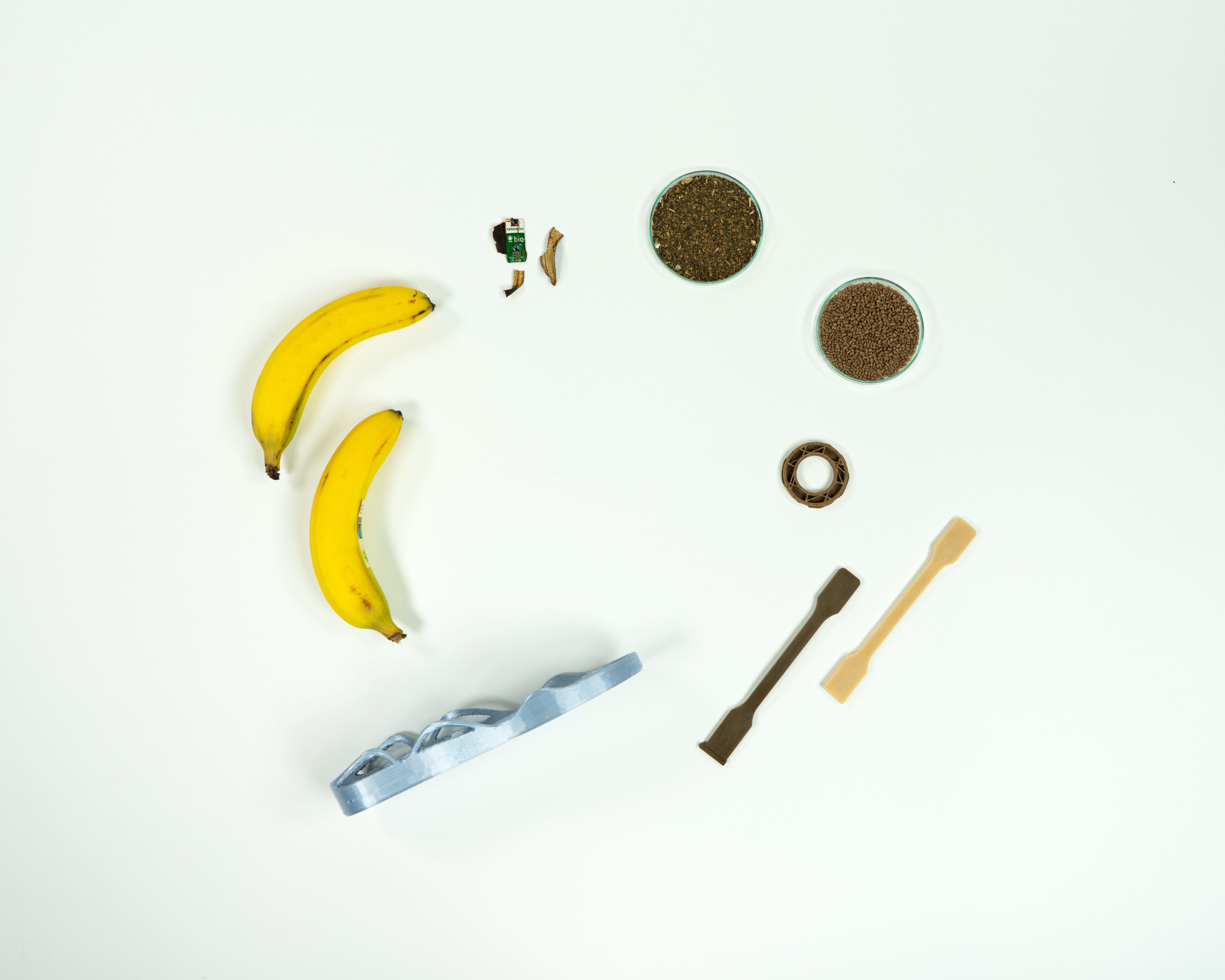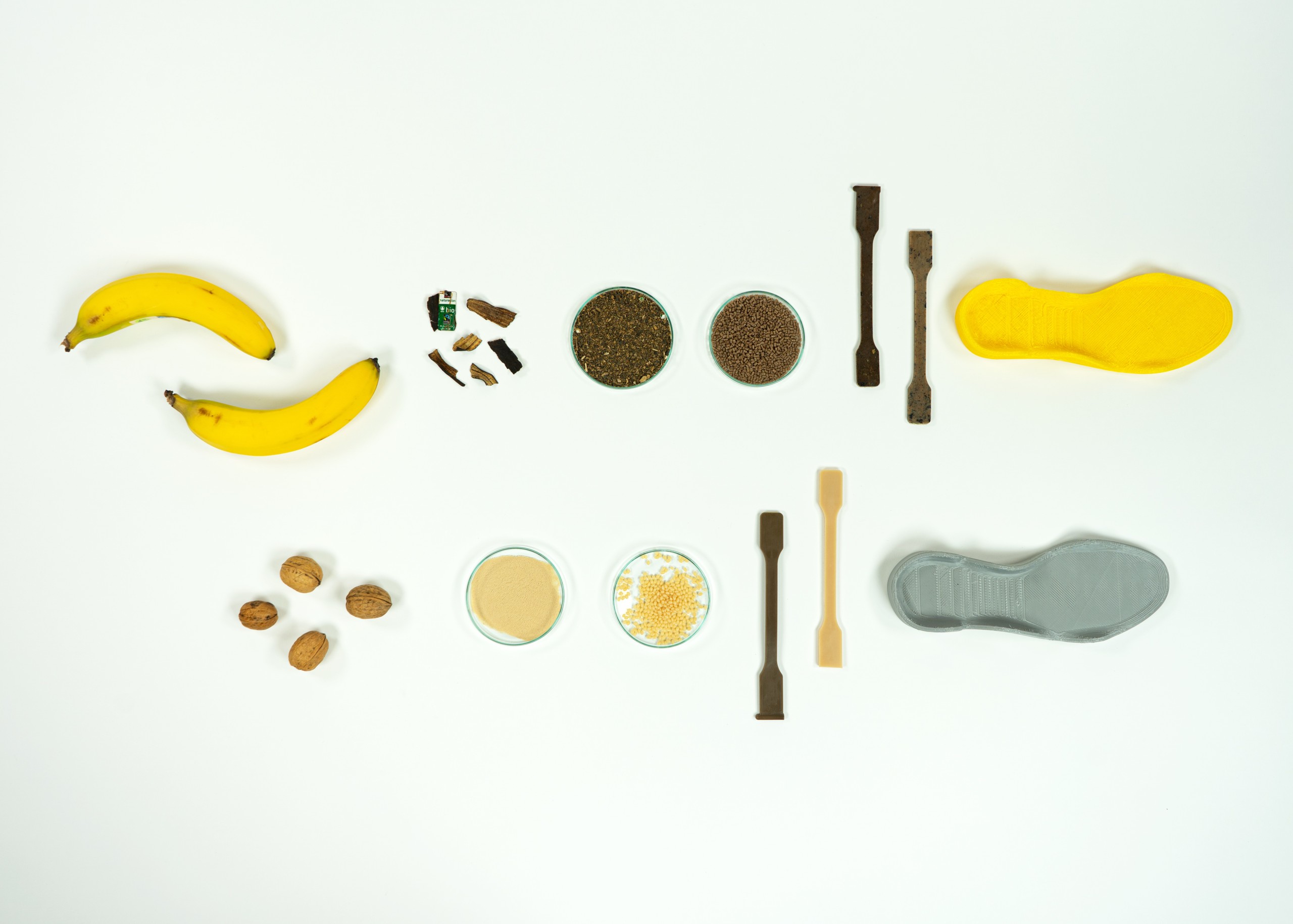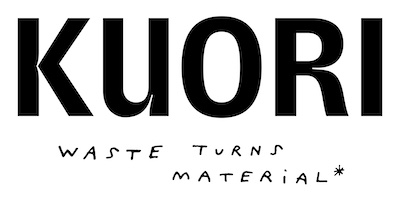KUORI: We want to revolutionise the shoemaking industry
Guest entry from : KUORI
© Image 1: Sarah Harbarth, Alina Saladin
© Image 2 | 3: Sarah Harbarth
KUORI (Finnish for “peel”) met with immediate interest from both the media and the public when Sarah Harbarth first revealed her concept on social media. “People asked: ‘Where can I buy this?’ They were really fired up about it, and the community just grew and grew.”
“Hold on a minute,” thought Sarah Harbarth during her studies in industry design at the University of Applied Sciences and Art Northwestern Switzerland (FHNW) back in 2019, “we import all these banana peels and do nothing with them? That doesn’t seem right.” Fast-forward two years, and that initial impulse is bearing fruit: Harbarth is now a fully-fledged product designer at the helm of the KUORI start-up project, which aims to revolutionise the footwear industry by producing soles made out of banana peel and other organic waste material.

Banana consumption in Switzerland has increased continually over the decades: 97’000 tons of the tropically-grown fruit was imported in 2019 alone. Many thousands of tons of it end up in the trash as organic waste. This biodegradable material, which unlike synthetic rubber is designed to decompose under certain conditions, ticks several boxes in terms of sustainability: It recycles waste – thus adding value (upcycling); it extends the life of resources (cradle-to-cradle approach and circular economy); and, last but by no means least, it contributes to the fight against microplastic pollution by reducing the number of particles that enter the environment through abrasion.
According to a study by the Fraunhofer Institute, every one of us rubs off 109 grams of microplastic each year. With 83 million people walking around in Germany, that adds up to 8.3 million kg of microplastic entering the natural environment through walking alone.
*“Ultimately, no microplastic should end up in our environment. Everything we take from nature should be returned to nature without harming it.”.**
When KUORI attracted international attention, the author decided to continue her research into material development with an interdisciplinary team. Research activities with a focus on developing a marketable material for shoe soles began in September 2021 at the Institute of Polymer Engineering after the project gained funding from the Gebert Rüf Foundation. The KUORI team was able to reassure the funding foundation and secure further financial support after achieving its milestone targets during the initial pilot phase, which ended in February 2022.
“We want to revolutionise the shoemaking industry by thinking differently. We strive to design products that use natural, degradable materials – a circular economy is the future of our everyday lives.“

Although she hasn’t yet founded a company, Harbarth still faces the usual challenges encountered by young entrepreneurs: At the moment she is forced to focus less on design and more on growth and financing strategies. And the next big step for KOURI is just around the corner. Harbarth reveals, “We are currently in the process of launching a start-up and would like to begin a pre-seed funding round this year.” She has already contacted several venture capital funds and business angels in order to achieve this next-stage goal. Unfortunately, however, there are very few women investing in start-ups – particularly in Switzerland. “It would be great if we could find a female angel investor who both lives sustainability and wishes to promote it.” Anyone out there interested in supporting KOURI can click here for more details.
A huge thanks goes out to Sarah Harbarth and KUORI!

Sources:

